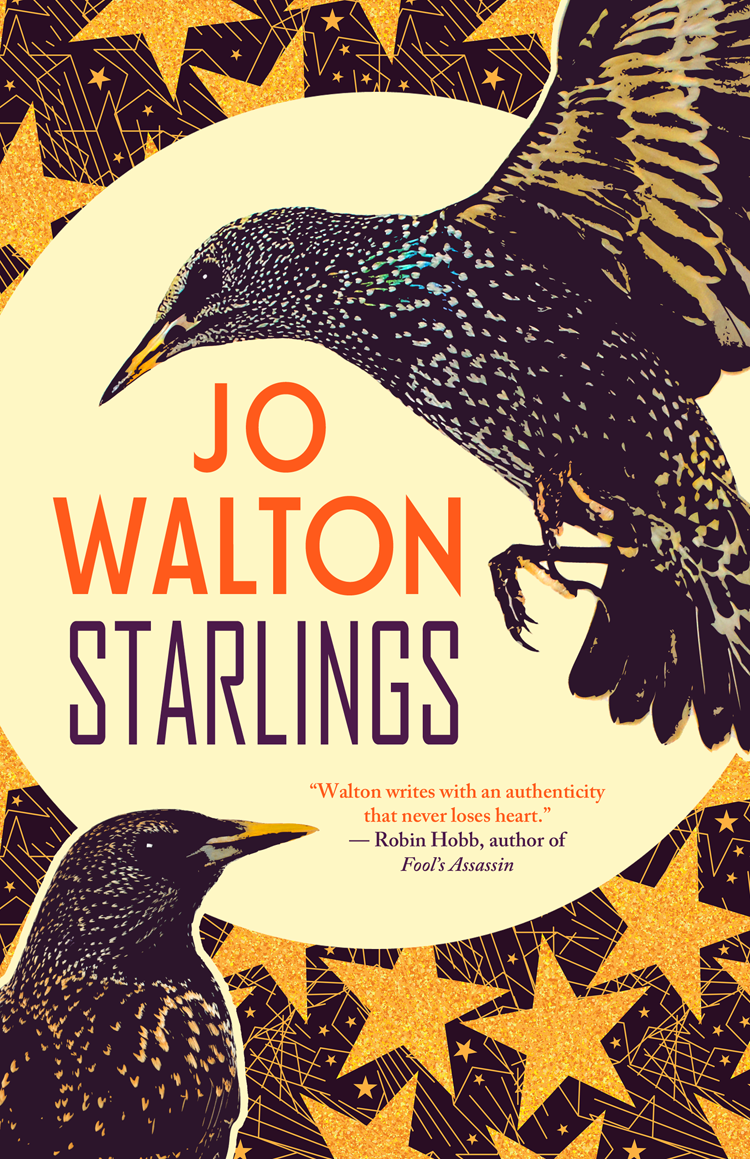Oh, and incidentally, because this is going to sound demented.
You know how there are some characters you keep writing? Who keep coming back in different forms, and want to be written about, like Bottom auditioning for all the parts in the play? There are other characters who are one piece with their world and themselves and couldn’t be anyone else, they’d look down their noses at you if you tried to put them anywhere else. But there are some who are mercury, who keep on trying to be persuasive and want to get in on anything — well, except being a suicidal Narlahenan, for which I had no volunteers at all.
Anyway, when you’re unpublished, you can let them. Why not, after all? Keep trying them out. But when you are published, when you gave them a good job, the most they ought to ask of you is a good character reference when they go off to someone else. You shouldn’t do it. I know it. It’s wrong, it makes everything seem the same.
I understand now why Georgette Heyer had only a small number of male types. She was working with a repetory cast.
There’s a note in my personal Thud file on Tooth and Claw that says “Conal-mou, surely you don’t want to be a dragon?” But yes, he did, and he managed to persuade me he’d make a great dragon. He’s so good at fast talk. He once managed to make me — me! — write a story about Ireland.
So, he’s had parts in all my published fiction. OK. But no more. Enough. Except this morning he keeps hanging around telling me how good he’d be as Jankin. “Jankin’s supposed to be charismatic, and I’m good at charismatic.” “Jankin,” I tell him firmly, “is supposed to be sensible and solid and Western, and you’ve never been sensible in any of your lives, now will you get out of my light and let me see him.” He spreads his hands, dresses himself dead sober in Western fashion, with a hat, from which he quickly hides the feather, using it to paint in a bit of background, an appealing gooseberry bush from the Marches, and says “Well maybe it’s time for me to grow up and try sensible, and have you considered that two women are supposed to fall in love with Jankin? I’m very good, though I says it myself, at getting women to like me. Aren’t you the slightest bit fond of me yourself, woman? Besides, you’ll need me for the dialogue, I can do wicked dialogue, any period you like.”
“Conal-mou, you cannot be Jankin. I can see I can’t manage without you, though the thought appals me, here, you can have the feather back and I’ll find you a part as a painter, and several people can fall in love with you, and there won’t be any angst, which is good, you’ve had a lot of angst after all. And Rysmiel’s evil twin who won’t forgive me for killing you will like it.”
“Killing me? I won’t say I didn’t die by that stream, but it would take more than that to kill me. Doesn’t she know I walked in out of the myth? Doesn’t she know where death is, in a story, isn’t the same, because you can walk round it? And what you were saying about people who don’t come and audition for other parts, they’re the people entirely inside the story, for whom death is death, if they die it. For me, in the myth, in your head, I can see around it like you can, like she ought to be able to, and so I can die, with a lovely speech, and tears from the audience, real tears, and a bit of amazement because they are real tears, and then I hop up again before and elsewhere. I’m less capable of really dying dead than you are, because there’s more of me outside your head than there is of you. Remember when, once, Urdo turned around and spoke to you for a moment, and thought you were Fate? My grandfather and I can see you all the time, and we do our best to get around you. A painter, hey? With a little studio with a rosehedge and a gooseberry bush and a bed?”
“Scene-stealer. Just move over and let me get a clear view of what I need right now, which is Jankin.”



